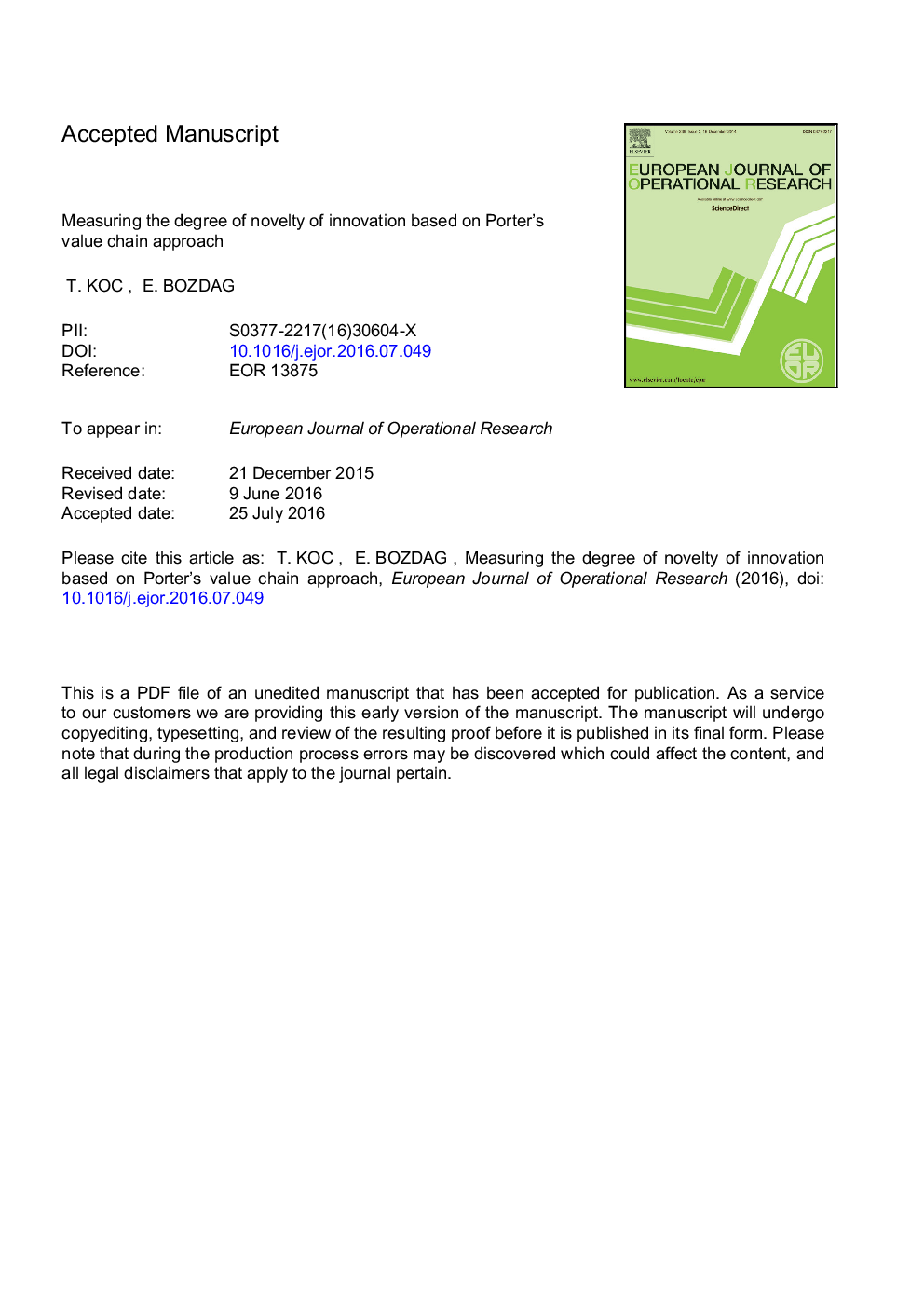| Article ID | Journal | Published Year | Pages | File Type |
|---|---|---|---|---|
| 4960065 | European Journal of Operational Research | 2017 | 26 Pages |
Abstract
Measurement of the degree of novelty is extremely important to avoid risk and carry out a sound innovation process. This research attempts to offer a different conceptual framework to understand and measure the degree of novelty of an innovation. It is based on Porter's value chain approach and proposes a process-oriented model that considers the possible impact of a particular technology on the discrete business processes in a firm's value chain. A new technology employed by companies is expected to impact the value chain activities by requiring reorganization in the current value chain of the company. The 2-additive Choquet integral is used to measure how such impacts will be reflected on the degree of novelty of that technology. An application of the proposed model to technology alternatives for the energy sources of electrical automobiles is presented. The model is applied in a battery manufacturing company. Technology alternatives to be measured in terms of the degree of novelty consist of the nickel metal hydride battery, the lithium-ion battery and fuel cell technologies. The results indicate that fuel cell technology has the highest degree of novelty among the three energy sources for electrical automobiles.
Related Topics
Physical Sciences and Engineering
Computer Science
Computer Science (General)
Authors
T. Koc, E. Bozdag,
